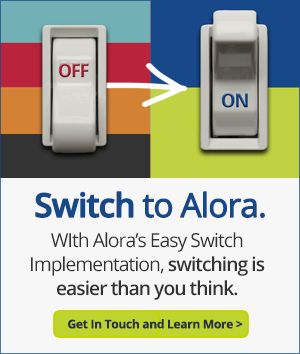16 Oct How I Built My Home Health Agency from Scratch – One Agency Owner’s Story
Home Health Agency Owner Michael Mussman details challenges, insights, and lessons learned in growing a successful home health agency
From 2014 through 2021, I owned and managed a home health agency in San Diego, California. Over that time, I made mistakes and learned valuable lessons. I still remember the numerous challenges we overcame. If you’re thinking about starting your own agency, or you already have one and want to grow, here’s my story of how I built a home health business from scratch. It is my hope that this brief chronicle of my experience provides something valuable and useful.
Step 1: Start with Who You Are
Patricio, a highly trained nurse from Chile, was the heart and soul of our agency. In his 30s, he emigrated to the USA, but his nursing credentials weren’t recognized. Rather than repeat years of school, he started a business.
We built the agency’s brand on his values: listening and compassion. When planning your own agency, ask yourself what you value most in caring for people. Those values should guide every decision you make.
Step 2: Learn the Rules and Get Licensed
 From the start, we faced tough questions. Who would our customers be? Who could we hire? Should we accept “cash under the table”?
From the start, we faced tough questions. Who would our customers be? Who could we hire? Should we accept “cash under the table”?
It quickly became clear: without a license, we couldn’t work with Medicare or insurance. Families relying on reimbursement would never choose us. Operating informally would only limit growth and create risk.
So we pursued a California Department of Public Health (CDPH) license. The process was long and detailed: filing the application, paying fees, and submitting articles of incorporation, financial statements, and policies and procedures. CDPH requires a complete operations manual covering admission, infection control, and more. You can buy a template, but you must customize it to your agency.
After a year long wait, the surveyor arrived. She reviewed policies, checked records, and interviewed staff. When the license finally came through, that felt like crossing the first major milestone.
Step 3: Building the Team
 Next came staffing. In California, competition for qualified nurses, therapists, and aides is fierce. Most professionals already had jobs with larger agencies.
Next came staffing. In California, competition for qualified nurses, therapists, and aides is fierce. Most professionals already had jobs with larger agencies.
To attract people, we built a supportive culture: work-life balance, ongoing training, and respect. Caregivers who felt valued, referred their colleagues, and over time, word of mouth brought us a strong team.
Step 4: Developing Systems
In the beginning, I underestimated how much systems mattered. Scheduling, billing, and payroll quickly became overwhelming. Without structure, growth was impossible.
After research, we invested in home health software with a caregiver mobile app. It managed electronic health records, scheduling, billing, payroll, and compliance reporting. It cut errors, eliminated paperwork, and improved communication with families, saving us countless hours.
Step 5: Finding Our First Patients
Getting licensed and staffed was one hurdle; finding patients was another. While Patricio’s personal reputation helped, we couldn’t rely on that alone.
Advertising was expensive and inconsistent. Instead, I tried event marketing — brown-bag trainings, community health fairs, and vendor expos. These events built credibility and positioned us as local leaders.
We also reached out to hospitals, skilled nursing facilities, and physician offices for referrals. Early conversations were humbling—many providers were hesitant to trust a new agency. To overcome this, we made responsiveness our priority. Every referral was handled quickly, and I followed up personally. That level of attention-built trust and eventually gave us a steady stream of patients.
Step 6: Keeping Momentum
 As we grew, it became harder to stay personally connected with every caregiver and patient. To avoid losing momentum, I made field visits a habit, dropping off lunch, flowers, or simply checking in.
As we grew, it became harder to stay personally connected with every caregiver and patient. To avoid losing momentum, I made field visits a habit, dropping off lunch, flowers, or simply checking in.
Don’t hide in an office. As an owner, your visibility with caregivers and patients is essential. Being present creates opportunities for feedback and keeps you connected.
I lead my agency for nearly a decade before passing it to new leadership. Looking back, three lessons stand out:
- Play by the Rules. Don’t cut corners with licensing, documentation, or staffing. It may feel like red tape, but compliance opens doors to insurance and Medicare, and that means more patients and growth. A solid home health software will also help considerably with operational and compliance necessities.
- It Takes a Team. No single personality can sustain an agency. You need staff who are supported, trusted, and empowered. A culture of respect builds loyalty and retention. Strong referral sources also take time to cultivate, but they are the foundation of stability.
- It Takes Time. Launching a home health agency is not quick or easy. Regulatory processes move slowly, and building credibility with patients and providers takes patience. Don’t rush, don’t obsess over tomorrow. Look at the big picture. What’s your strategy for next year and beyond?
Your journey won’t match mine exactly. But if you start with clear values, pursue licensure, invest in systems, and build strong relationships, you’ll set yourself up for success.
Running a home health agency is demanding, but also deeply rewarding. Every day, your business helps people stay safe and independent in their homes. When you see the gratitude of patients and families, you’ll know that your agency was worth the effort.
Related blogs:
- The 10 step guide to growing your home health agency – White paper
- Seven steps to starting a successful home health care agency – White paper
- How to make your agency the expert on homecare
- Five home health agency marketing strategies
- Improving caregiver retention through nurse mentor programs

Alora can help your agency stay compliant with reporting, assessment, and staff management with a streamlined interface that is built for both skilled and non-skilled homecare operations. Awarded easiest to use and best customer support in Software Advice’s Reviewer’s Choice awards, everything is easier when you have a simple solution that gives you everything you need in one place. Click on the link to learn more about how ALORA helps agencies spanning from start-ups to well established home health businesses

“From an Agency Owner’s Desk”
About The Author
Michael Mussman is a well tenured home health care thought leader, former agency CEO, and public speaker. As a versatile content and communication creator his contributions to publications, events, and other engagements bring a unique and experienced voice that often makes complex subject matter more easily explained. With decades of experience in the industry, his insights, personal experience, and passion for speaking to the intricacies of home health care make him a welcome addition to Alora’s team of thought leadership content contributors.




No Comments